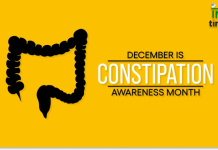
World Antibiotic Awareness Week (WAAW) is observed annually from November 18 to 24 to highlight the critical role antibiotics play in medicine and the urgent need to address antibiotic resistance. Led by the World Health Organization (WHO), this week encourages the responsible use of antibiotics among individuals, healthcare professionals, and policymakers. As antibiotic resistance becomes a global health crisis, WAAW serves as a reminder of the need to preserve these essential medicines.
Why is Antibiotic Awareness Important?
Antibiotics are powerful medicines that fight bacterial infections, making once-deadly diseases treatable. However, the overuse and misuse of antibiotics have led to increased bacterial resistance, rendering these drugs less effective. Without effective antibiotics, simple infections could again become life-threatening, and many medical procedures could carry high risks of infection.
Goals of World Antibiotic Awareness Week
- Increase Global Understanding: Raise awareness of antibiotic resistance and promote education on appropriate antibiotic use.
- Encourage Responsible Use: Guide individuals and healthcare providers in using antibiotics only when needed and prescribed.
- Highlight the Dangers of Overuse and Misuse: Educate the public on the risks of self-medicating or not completing prescribed courses.
- Foster Collaboration: Strengthen the commitment of governments, healthcare sectors, and communities to tackle antibiotic resistance.
Theme for World Antibiotic Awareness Week 2024
The theme for WAAW 2024 is “Antibiotics: Handle with Care”. It emphasizes that antibiotics are precious resources requiring careful handling. This theme underscores the importance of preserving antibiotic effectiveness for current and future generations.
Understanding Antibiotic Resistance
Antibiotic resistance occurs when bacteria adapt to survive the effects of medications meant to kill them. As these bacteria evolve, the effectiveness of antibiotics diminishes, making infections harder to treat. The consequences are severe, with resistant infections leading to longer hospital stays, higher medical costs, and increased mortality rates.
Major Factors Contributing to Antibiotic Resistance
- Overuse of Antibiotics: Excessive use in treating human illnesses or as preventive measures, especially in agriculture.
- Self-Medication: Many individuals take antibiotics without prescriptions, often for viral infections that don’t respond to these drugs.
- Incomplete Treatment Courses: Not finishing prescribed antibiotics can leave some bacteria alive, which may develop resistance.
- Agricultural Use: The widespread use of antibiotics in livestock to promote growth and prevent disease contributes significantly to resistance.
- Poor Infection Control and Sanitation: Inadequate hygiene practices in healthcare and community settings facilitate the spread of resistant bacteria.
Health Risks Associated with Antibiotic Resistance
- Untreatable Infections: Some infections could become resistant to all available antibiotics, making them untreatable.
- Higher Mortality Rates: Resistant infections lead to complications and fatalities, especially among vulnerable populations.
- Increased Healthcare Costs: Resistant infections often require prolonged treatment, additional tests, and more expensive drugs.
- Threats to Modern Medicine: Many medical procedures, including surgeries and cancer treatments, rely on effective antibiotics to prevent infections.
Antibiotic Stewardship: A Vital Strategy
Antibiotic stewardship programs are designed to guide and promote the responsible use of antibiotics. These programs are crucial in slowing the spread of antibiotic resistance. Key components include:
- Educating Health Professionals: Training healthcare providers on when and how to prescribe antibiotics appropriately.
- Public Health Campaigns: Raising awareness among the public about the dangers of misuse and the importance of adhering to prescribed treatments.
- Strengthening Regulations in Agriculture: Limiting the non-essential use of antibiotics in farming to prevent the spread of resistance from animals to humans.
How Can Individuals Help Combat Antibiotic Resistance?
- Take Antibiotics Only When Prescribed: Never use antibiotics without a healthcare provider’s guidance.
- Follow Prescriptions Carefully: Complete the full course of antibiotics, even if you feel better, to ensure all bacteria are killed.
- Practice Good Hygiene: Handwashing, food safety, and vaccinations reduce the risk of infections, limiting the need for antibiotics.
- Avoid Sharing Antibiotics: Never share antibiotics with others or use leftover medications.
The Role of Healthcare Providers
Healthcare providers play a central role in addressing antibiotic resistance through:
- Patient Education: Informing patients about the importance of responsible antibiotic use.
- Implementing Infection Control Protocols: Preventing the spread of resistant bacteria in healthcare settings.
- Supporting Stewardship Programs: Actively participating in and promoting antibiotic stewardship practices.
Policymaker Initiatives for Antibiotic Resistance
Governments and policymakers are essential in the fight against antibiotic resistance by:
- Creating National Action Plans: Establishing regulations to monitor and reduce antibiotic use and misuse.
- Funding Research: Investing in the development of new antibiotics and alternative treatments.
- Setting Standards in Agriculture: Regulating the use of antibiotics in livestock to prevent the spread of resistance to humans.
Global Collaboration to Combat Antibiotic Resistance
The One Health Approach: Antibiotic resistance affects human, animal, and environmental health. The One Health approach emphasizes collaboration across these sectors to combat resistance more effectively.
International Partnerships: The WHO, along with other organizations, collaborates globally to implement AMR strategies, share data, and promote best practices across countries.
Conclusion
World Antibiotic Awareness Week highlights the urgent need to combat antibiotic resistance through mindful use, public education, and coordinated efforts. Antibiotic resistance is a threat to global health, and only through collaborative action can we preserve these vital medicines for future generations.
FAQs
1. Why is World Antibiotic Awareness Week important?
It raises awareness of the critical role antibiotics play and the need for responsible use to combat resistance.
2. How does antibiotic resistance develop?
Resistance develops when bacteria adapt to survive exposure to antibiotics, often due to misuse, overuse, and improper treatment.
3. What is the One Health approach?
One Health promotes collaboration across human, animal, and environmental health sectors to address AMR more effectively.
4. How can I contribute to reducing antibiotic resistance?
By using antibiotics only when prescribed, following treatment courses fully, practicing good hygiene, and avoiding self-medication.
5. How does agriculture impact antibiotic resistance?
The use of antibiotics in livestock contributes to resistance, which can spread to humans through the food chain or environment.
World Antibiotic Awareness Week is a time for everyone—from individuals to governments—to recognize their role in preserving the efficacy of antibiotics. Through mindful actions and unified efforts, we can combat antibiotic resistance and protect global health.




































Trezor Suite
Trezor Suite
Trezor Suite